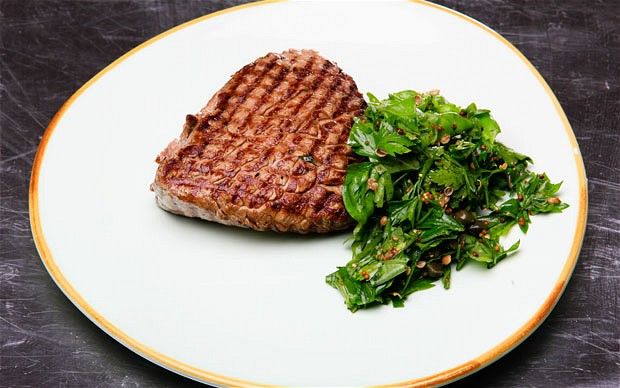New publications
Chinese geneticists are trying to create the perfect beef
Last reviewed: 01.07.2025

All iLive content is medically reviewed or fact checked to ensure as much factual accuracy as possible.
We have strict sourcing guidelines and only link to reputable media sites, academic research institutions and, whenever possible, medically peer reviewed studies. Note that the numbers in parentheses ([1], [2], etc.) are clickable links to these studies.
If you feel that any of our content is inaccurate, out-of-date, or otherwise questionable, please select it and press Ctrl + Enter.
For chefs and gourmets, the perfect steak is like the Holy Grail. Their endless quest has been joined by Chinese scientists who are working on creating a genetically modified breed of cows whose meat should have superior taste qualities.
The extra gene that scientists have "enriched" cows with increases the fat content in the animals' muscles. Thanks to this, the Chinese hope to obtain "marbled" pieces of beef, tender like the famous Japanese Wagyu beef.

The scientists have managed to raise the first two modified calves, which still need to reach maturity before they are slaughtered. Then it will be possible to assess how successful the Chinese experiment has been.
Professor Ni Minyong, who leads the project at Peking University, says that if the experiment is successful, it will produce the world's first breed of transgenic cows whose meat contains a protein that binds fatty acids.
"High fat content in beef is one of the main characteristics of high-quality beef," the professor notes. "As a result of further research, it will be possible to achieve the ideal marble structure of domestic beef and thus provide an alternative to imported premium meat."
This is far from the first attempt to improve the quality of meat or milk from cows using genetic engineering. For example, this year, Chinese scientists announced that they had managed to breed cows whose milk can be drunk by people who are lactose intolerant. In addition, according to them, this milk is enriched with healthy fats, which people get mainly from fish.
Last year, scientists from China successfully introduced human genes into two hundred cows so that their milk would match the qualities of human (mother's) milk. At the moment, the most expensive beef in the world is Japanese fogyu beef, famous for its marbled structure and excellent delicate taste. Transgenic beef with similar characteristics, which the Chinese are working on, will be much cheaper than natural fogyu beef. However, even if the experiment is successful, this miracle beef will not appear on store shelves for at least several years.
As with any issue involving genetic modification, scientists and the public are divided on the creation of new transgenic beef. For example, Dr Helen Wallace, director of the Genewatch group of companies, says that European consumers will undoubtedly be concerned about the increasing number of animals suffering from genetic experiments. “Traditional selection and other technologies can help improve the quality of meat. You don’t necessarily need to use genetic technology to get a high-quality product,” she says.

 [
[